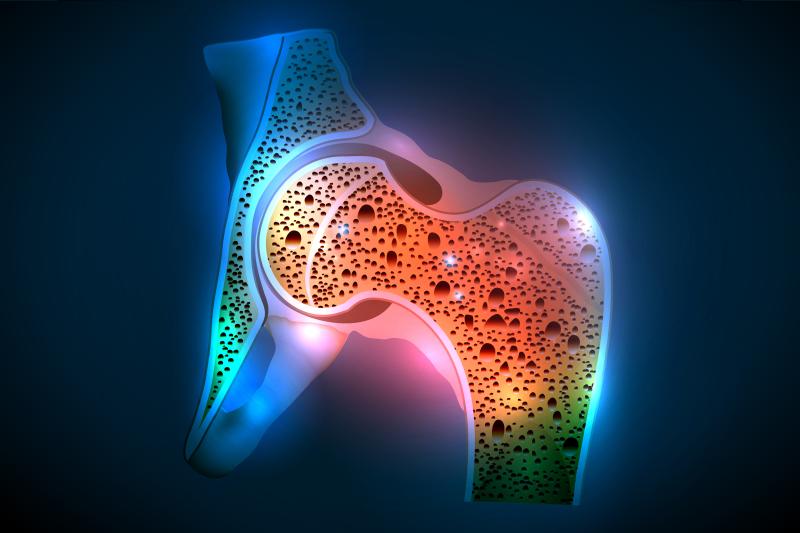
Treatment with denosumab appears to be effective and safe in patients with fibrous dysplasia/McCune-Albright syndrome (FD/MAS) who are refractory to bisphosphonate therapy, suggests a recent study.
FD/MAS patients achieved a sustained reduction in biochemical markers of bone turnover (BTMs) following treatment with 60-mg denosumab once every 3 months, but not once every 6 months.
Serum alkaline phosphatase activity decreased from 212±39.4 to 79±6.0 IU/L (p=0.004) and propeptide of type 1 procollagen levels from 346.2±111.1 to 55.7±16.6 ng/mL after a median treatment period of 15.5 months (range, 12–19). These markers normalized in 70 percent and 75 percent of patients, respectively.
Ten patients reported a decrease in bone pain, of whom six reported complete elimination of pain, but this was not measured quantitatively. Denosumab treatment was also well tolerated.
“These results together with those of previously published case reports provide the necessary background for the design of a larger, controlled study,” the investigators said.
This case-series study in an academic centre of expertise for rare bone diseases collected data from 12 consecutive patients with FD/MAS with persistent pain and increased BTMs after long-term treatment with bisphosphonates (median, 8.8 years). Participants were then treated with subcutaneous denosumab 60 mg at 3- or 6-month intervals, with a follow-up of at least 12 months. The primary endpoints were sustained reduction of BMTs and bone pain.
“FD/MAS is a rare bone disorder commonly treated with bisphosphonates, but clinical and biochemical responses may be incomplete,” the investigators noted.